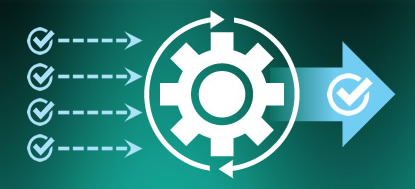The FutureDial Blog
(8.21.2023)
![]()
TAKEAWAY: The reconditioned mobile phone sector is booming as buyers opt for affordable preowned models over new devices. Phone refurbishers and resellers who adhere to industry standards such as ADISA, NIST, R2v3, and GDPR gain a significant edge in the market. Complying with these standards yields benefits like trust-building, enhanced products, legal risk reduction, and market expansion. More refurbishers and resellers are now adopting automation, recognizing that efficiently meeting these standards via automation isn’t just crucial for success, but is also a strategic advantage.
How Quality (and Profitability) are Enhanced when Certified by Industry Standards
The refurbished mobile phone industry has witnessed exponential growth in recent years as consumers seek cost-effective and sustainable alternatives to brand-new devices. Amid this booming market, staying ahead of the competition is crucial for phone refurbishers and resellers. One proven way to achieve a competitive edge is by complying with industry standards such as ADISA, NIST, R2v3, and GDPR. In this article, we will explore how adhering to these quality-driven standards not only enhances product quality, but also boosts profitability.
Building Trust and Credibility
One of the primary benefits of conforming to industry standards is the establishment of trust and credibility among consumers, partners, and stakeholders. Complying with industry standards is a pivotal step in building trust and credibility within the refurbished mobile phone industry. By obtaining certifications from industry-recognized organizations, refurbishers and resellers will demonstrate their commitment to upholding the highest standards of quality and security.
- ADISA certification assures consumers, partners, and stakeholders of top-tier data security. Its stringent evaluation covers all refurbishment phases, including data wiping, destruction, and security. This guarantees that personal data on refurbished phones is completely erased, dispelling privacy concerns and boosting consumer confidence and trust.
- Similarly, NIST compliance adds credibility to refurbishers for data protection and cybersecurity standards. Following NIST guidelines assures customers of careful device handling and internationally accepted data protection practices. This certification underscores the refurbisher’s dedication to information security, boosting customer confidence in refurbished device reliability.
- Beyond certifications, refurbishers must also undergo audits to confirm compliance to industry standards. Through these audits, independent third-party experts assess the refurbishment process, aligning data-clearing with R2v3 and GDPR regulations.
- GDPR compliance, especially in regions governed by European data protection laws, is crucial for refurbishers. GDPR audits validate lawful, transparent, and secure personal data processing. Adherence to GDPR guidelines instills trust among customers, assuring them that their privacy rights are protected throughout the refurbishment process.
- Adhering to industry standards not only benefits consumers, but also attracts valuable business partnerships. Certified refurbishers become preferred choices for organizations, enterprises, and government bodies, by ensuring secure and ethical device and data handling.
Through certifications and stringent audits, refurbishers establish themselves as dependable and responsible providers, gaining a competitive edge and strengthening customer trust in their refurbished devices.
From Waste to Wow: R2v3 Elevates Refurbished Phone Quality
![]() R2v3 (Responsible Recycling) significantly enhances the quality of refurbished phones while simultaneously addressing critical concerns surrounding data privacy. By adhering to its eco-focused guidelines, this standard streamlines the handling of electronic waste, effectively reducing its environmental impact. A central tenet of R2v3 lies in prioritizing refurbishment over disposal, yielding substantial reductions in waste generation and associated costs.
R2v3 (Responsible Recycling) significantly enhances the quality of refurbished phones while simultaneously addressing critical concerns surrounding data privacy. By adhering to its eco-focused guidelines, this standard streamlines the handling of electronic waste, effectively reducing its environmental impact. A central tenet of R2v3 lies in prioritizing refurbishment over disposal, yielding substantial reductions in waste generation and associated costs.
The renewed emphasis on refurbishing preowned mobile phones over disposal, as underscored by the central tenet of R2v3, presents a critical opportunity for leveraging automated processing to achieve substantial impact. Automated processing offers a range of benefits listed here below, that align perfectly with the goals of R2v3 and the larger sustainability objectives within the electronics industry.
1. Efficiency in Data Sanitization
2. Streamlined Quality Testing
3. Precision Refurbishment
4. Inventory Management and Tracking
5. Quality Consistency and Scalability
6. Time and Cost Efficiency
The renewed focus on refurbishing preowned mobile phones, championed by R2v3, creates an ideal chance to tap into automated processing. Refurbishment’s intricacy matches automation’s precision, efficiency, and consistent results. This synergy advances waste reduction and quality aims of R2v3, bolstering sustainability in the mobile phone sector. R2v3 compliance ensures top-tier quality devices and boosts consumer trust. Dedication to responsible recycling resonates with eco-conscious individuals, consequently broadening the market for these devices..
Navigating GDPR Minefields: Shielding Your Business from Legal and Financial Pitfalls
Data protection regulations, such as the General Data Protection Regulation (GDPR), impose strict requirements on businesses that handle personal data, including phone refurbishers and resellers. Non-compliance with GDPR can result in severe legal and financial consequences, making adherence to these regulations essential for businesses in the refurbished mobile phone industry. Automation in processing, especially in secure data sanitization, has been a vital tool in ensuring audit-able compliance with GDPR for processed preowned mobile devices. GDPR compliance involves several key elements:
- Transparent Data Handling
- Data Security Measures
- Data Retention and Deletion
- Data Breach Notification
Surpassing with Compliance: Expanding into Fresh Markets and Attracting Customers Compliance with industry standards like ADISA, NIST, R2v3, and GDPR expand the reach of refurbishers and accessing new markets and customers. significantly benefits refurbishers by enabling them to access new markets, establish credibility, and cultivate positive relationships with partners, customers, and stakeholders. It goes beyond mere regulatory requirements and becomes a strategic advantage that propels the refurbisher’s growth and success. Here are some of the ways in which industry compliance opens up opportunities for refurbishers:
- Preferred Partnerships with Large Enterprises
- Public Procurement Contracts
- Industry Association Memberships
- International Reach
- Building Consumer Confidence
- Meeting Corporate Sustainability Goals
- Differentiation in a Competitive Market
- Enhanced Brand Reputation
Regulatory Excellence Fosters Streamlined Processes, Greater Trust, and Quality Control Attaining compliance with industry standards like ADISA, NIST, R2v3, and GDPR requires refurbishers to adopt efficient business processes and best practices such as these highlighted below. In numerous instances, automation emerges as a pivotal factor, facilitating the seamless workflows essential for meeting these regulatory benchmarks:
 Standardized Refurbishment Procedures
Standardized Refurbishment Procedures- Robust Data Management Systems
- Effective Resource Allocation
- Quality Control and Testing
- Employee Training and Skill Development
- Inventory and Supply Chain Management
- Improved Customer Communication
- Scalability and Growth Opportunities
Compliance-driven practices necessitate refurbishers to weave these principles into their operations, underlining the importance of automation for streamlined processes. The resulting synergy of these practices and automation empowers refurbishers to navigate the complexities of industry standards, thereby elevating their standing within the market.
Gaining a Competitive Edge through the Power of Compliance
Having a competitive edge is vital in the rapidly evolving preowned phone market. ADISA, NIST, R2v3, and GDPR compliance help to bring trust, quality, and risk reduction. These standards expand markets, streamline processes, and boost profits. As sustainability and data security gain importance, adherence isn’t just a necessity, but a chance to excel. By seizing compliance’s benefits, refurbishers can lead and sustain growth in this dynamic market.
Mobile Phone Refurbishers and Resellers who want their mobile device processing operations to comply with Industry standards turn to FutureDial for automated solutions that ensure regulatory compliance and also support compliance auditing. Reach out to FutureDial by emailing to sales@futuredial.com to learn more.
© 2023 FutureDial Incorporated. All Rights Reserved.

